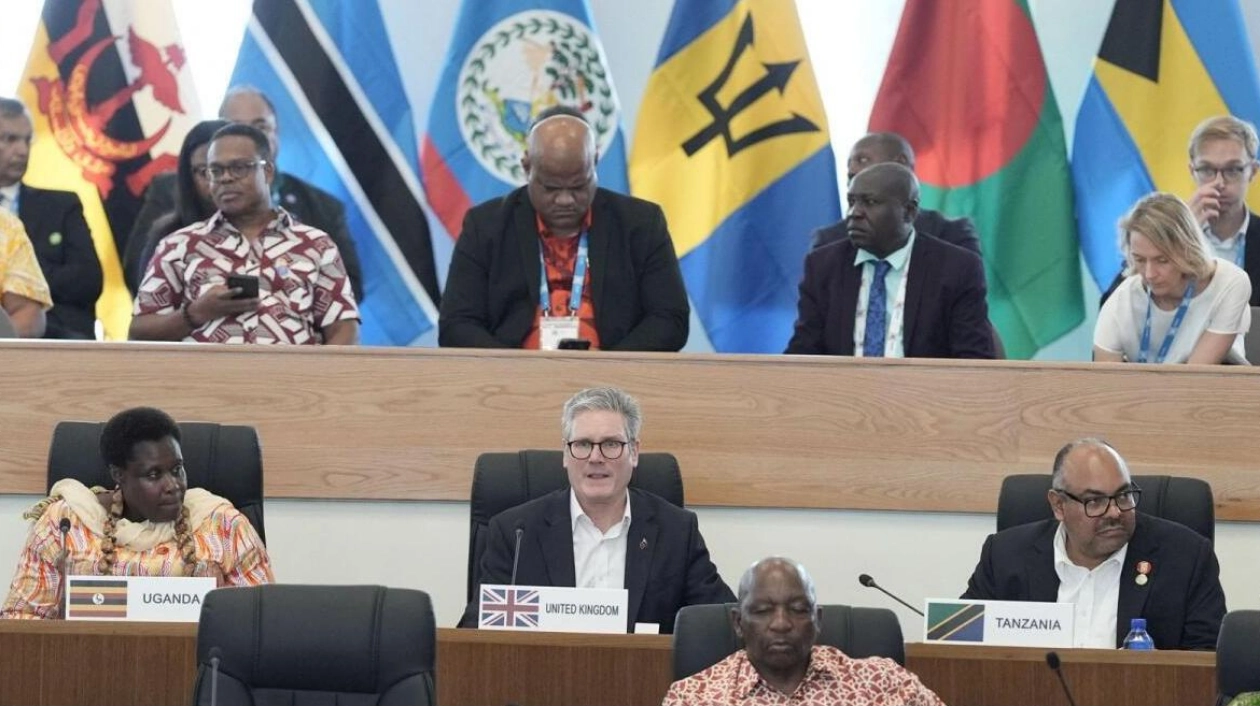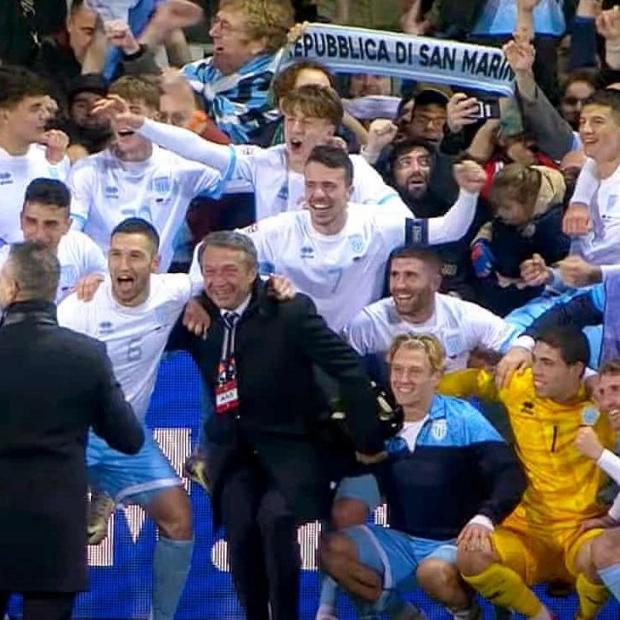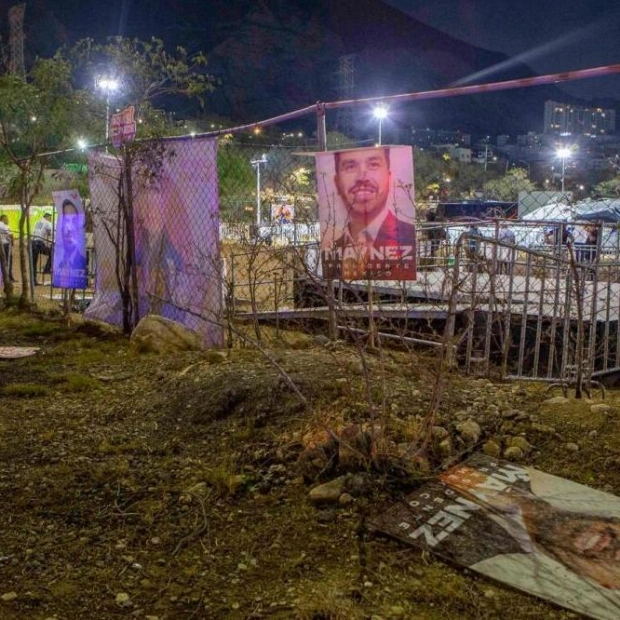Britain's Prime Minister Sir Keir Starmer participated in an executive session of the Commonwealth Heads of Government Meeting in Samoa on Friday, as reported by REUTERS.
Prime Minister Keir Starmer (C) attended the Leaders' Retreat during the Commonwealth Heads of Government Meeting (CHOGM) in Apia, Samoa, on Saturday, according to AFP.
The Commonwealth's 56 member states concurred on Saturday that it is time to discuss the legacy of the 'abhorrent' transatlantic slave trade, as highlighted in a significant summit declaration that hinted at potential future reparations. Leaders from Britain and numerous former colonies convened in Samoa for extensive and occasionally heated discussions on one of the most delicate aspects of their shared, complex history. In a joint statement, Commonwealth leaders acknowledged calls for 'reparatory justice' for the 'abhorrent' transatlantic slave trade and the 'enduring effects' of dispossessing Indigenous people, indentureship, and colonialism. The 'Samoa Communique' emphasized the need for a 'meaningful, truthful, and respectful conversation towards forging a common future based on equity.'
African, Caribbean, and Pacific nations are urging Britain—and other colonial powers—to address slavery and other colonial injustices, including initiating discussions on compensation. Many of these nations remain economically disadvantaged compared to their former colonial rulers and continue to bear the scars of the brutal trade that forcibly removed an estimated 10-15 million enslaved people from Africa over four centuries. Although Britain has expressed general remorse for slavery, London has been hesitant to consider financial reparations, which could involve substantial costs.
During the summit, the British government attempted to avoid making explicit commitments while striving to maintain some semblance of Commonwealth unity. 'I should be really clear here, in the two days we've been here, none of the discussions have been about money,' British Prime Minister Keir Starmer stated after the meeting. 'Our position is very, very clear in relation to that,' he added, asserting that the talks had been 'very positive.' The meeting's conclusion was delayed for hours as leaders and officials worked to reach a compromise. The final text may be more vague and legalistic than some former colonies desired.
During the summit, Bahamas Prime Minister Philip Davis told AFP that it was time for 'a real dialogue about how we address these historical wrongs.' 'The horrors of slavery left a deep, generational wound in our communities, and the fight for justice and reparatory justice is far from over,' he said. However, one expert believes the summit could be seen as historic. 'The commitment to conversations on reparatory justice wedges open the door for dialogue,' said Kingsley Abbott of the University of London's Institute of Commonwealth Studies. 'The Commonwealth should see this as an opportunity to lead on a potentially historic process and to do so with vision and courage,' he added.
For Britain—still navigating its global position post-empire and post-Brexit—the summit was a high-stakes balancing act. Starmer is under political pressure at home, and King Charles III, whose family profited from the slave trade over centuries, had faced calls to personally apologize. The British monarch, attending his first summit as head of the Commonwealth, refrained from offering an apology on Friday, instead urging delegates to 'reject the language of division.' 'I understand, from listening to people across the Commonwealth, how the most painful aspects of our past continue to resonate,' he said. 'None of us can change the past. But we can commit, with all our hearts, to learning its lessons and to finding creative ways to right inequalities that endure.' Charles departed for London before the final summit communique was agreed upon.
Commonwealth leaders found more common ground on the 'existential' issue of climate change. They agreed to an 'Ocean Declaration,' which recognizes current national maritime boundaries even if sea levels continue to rise. They also agreed to protect at least 30% of the ocean and to restore at least 30% of degraded marine ecosystems by 2030. 'What the ocean declaration seems to do and to say is that once your marine boundaries are fixed, they are fixed in perpetuity,' outgoing Commonwealth Secretary-General Baroness Patricia Scotland told AFP. Commonwealth leaders also agreed to appoint Ghana's foreign minister, Shirley Ayorkor Botchwey, as the new secretary-general. A former lawmaker, she has served as foreign minister for the past seven years, notably guiding Ghana's two-year tenure on the UN Security Council, which concluded in December 2023. She has supported the drafting of a Commonwealth free trade agreement and has previously expressed her stance on reparations. 'Truly humbled by the overwhelming support of the Commonwealth Heads of Government in selecting me as the incoming Secretary-General of the Commonwealth,' she posted on social media. 'The work indeed lies ahead!'
Source link: https://www.khaleejtimes.com






